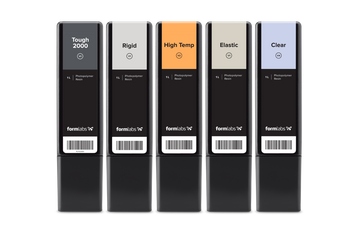The 3D printing industry has experienced tremendous growth over the past decade. As new materials and technologies emerge, the potential for creating complex, customized, and innovative products has continued to expand. Formlabs, a global leader in 3D printing technology, has once again revolutionized the industry with the introduction of their latest product: the TPU-90A, a flexible and versatile SLS 3D printing material.
In this in-depth article, we will explore the unique properties of the TPU-90A, its benefits, applications, and potential impact on the future of 3D printing.
The Emergence of Flexible SLS 3D Printing Materials
Selective Laser Sintering (SLS) is a 3D printing technology that utilizes a high-powered laser to fuse powdered material into solid parts. Although SLS has been around for some time, it has traditionally been limited to rigid materials like nylon and other plastics. As a result, SLS has been unable to create parts with the flexibility and elasticity needed for certain applications.
Formlabs has changed the game with their development of the TPU-90A, a thermoplastic polyurethane (TPU) material designed specifically for SLS 3D printing. This groundbreaking material combines the precision and detail of SLS printing with the flexibility and durability of TPU, opening up a world of possibilities for industries and applications that require both strength and flexibility.
Key Properties of TPU-90A
The TPU-90A material boasts a unique combination of properties that make it suitable for a wide range of applications. Some of the key features of this material include:
-
Flexibility: TPU-90A has a Shore A hardness of 90, making it an ideal material for creating flexible and elastic parts. This flexibility allows for the production of parts that can bend, twist, and compress without breaking.
-
Durability: The material has excellent resistance to abrasion, wear, and impact, ensuring that parts created with TPU-90A will withstand the test of time, even in demanding environments.
-
Chemical resistance: TPU-90A is resistant to oils, greases, and various chemicals, making it suitable for use in industries where parts may be exposed to harsh substances.
-
Water resistance: The material is also water-resistant, which means it can be used for applications that require water-tight seals or parts that will be exposed to moisture.
Applications of TPU-90A
The unique properties of the TPU-90A make it an excellent choice for a wide range of industries and applications. Some of the most notable use cases include:
-
Automotive: TPU-90A can be used to create a variety of automotive parts, including gaskets, seals, and vibration dampeners, which require both flexibility and durability.
-
Aerospace: The material's resistance to chemicals and wear makes it ideal for creating parts like fuel lines and seals in the aerospace industry.
-
Consumer electronics: TPU-90A is perfect for creating protective cases, grips, and other components for devices like smartphones, tablets, and wearables.
-
Medical devices: The flexibility and biocompatibility of TPU-90A make it suitable for creating medical devices, such as prosthetics and orthotics, which require a comfortable fit and the ability to adapt to the wearer's body.
-
Footwear: The material's combination of flexibility and durability makes it perfect for creating shoe soles, insoles, and other footwear components.
Potential Impact on the 3D Printing Industry
The introduction of TPU-90A is set to disrupt the 3D printing industry, as it fills a gap in the market for flexible and durable materials that can be used with SLS technology. The unique properties of TPU-90A have the potential to unlock new possibilities in design, prototyping, and production, ultimately leading to more innovative and customized products.
Here are some ways in which the TPU-90A could impact the industry:
-
Enhanced material options: The availability of TPU-90A will expand the range of materials available for SLS 3D printing, giving designers and engineers more options when selecting the ideal material for their projects.
-
Increased design freedom: TPU-90A's flexibility and durability enable the creation of more complex, intricate, and flexible designs that were previously difficult or impossible to achieve using traditional SLS materials. This increased design freedom could lead to more innovative products and applications.
-
Faster prototyping: The ability to create flexible, durable parts using SLS technology can help reduce prototyping times, as fewer iterations may be required to achieve the desired result. This could lead to faster product development cycles and more efficient manufacturing processes.
-
Expanded market opportunities: The introduction of TPU-90A opens up new markets and applications for 3D printing, particularly in industries that require parts with a combination of flexibility and durability. This could lead to increased demand for 3D printing services and a wider adoption of the technology across various sectors.
-
Sustainability: TPU-90A offers a more eco-friendly alternative to traditional petroleum-based plastics. By using TPU-90A for various applications, industries can reduce their environmental impact and contribute to a more sustainable future.
Conclusion
The introduction of Formlabs' TPU-90A marks a significant milestone in the evolution of 3D printing technology. By combining the precision and detail of SLS with the flexibility and durability of TPU, this innovative material has the potential to reshape the 3D printing landscape and unlock new possibilities for industries and applications worldwide.
As businesses and industries continue to embrace the potential of 3D printing, the demand for advanced materials like TPU-90A is expected to grow exponentially. Formlabs' commitment to innovation and cutting-edge technology has once again positioned them at the forefront of the 3D printing revolution, paving the way for a more innovative and sustainable future.






